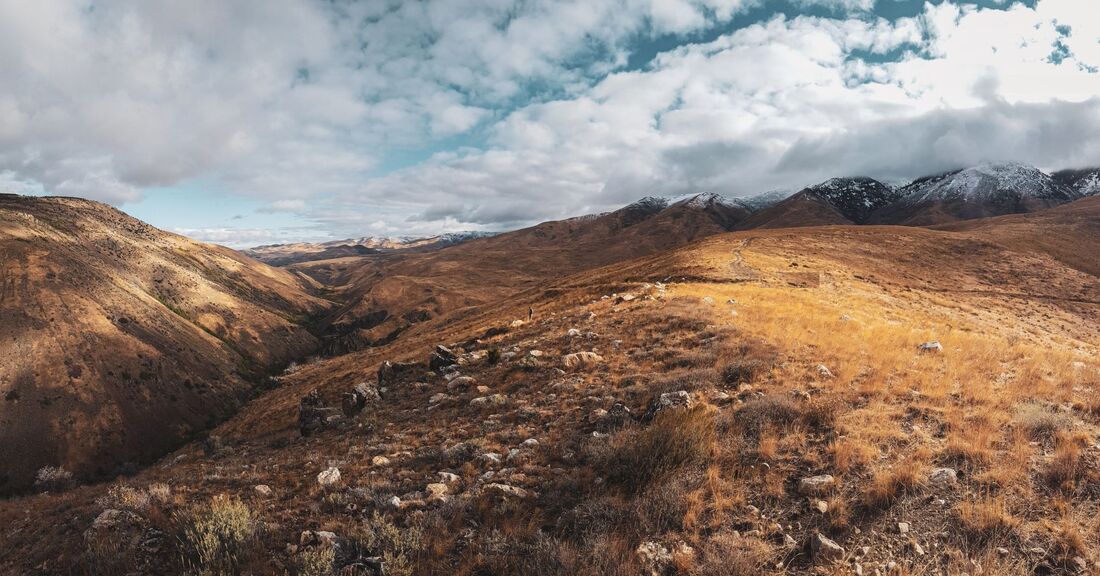|
(To read these posts in order from the beginning, start here.) Read Hosea 2:14 Long before God asked Abraham to sacrifice his son Isaac, he had another son, Ishmael. God had promised Abram and Sarai a son, and when he didn’t move fast enough for them, they took matters into their own hands. Sarai gave her handmaid Hagar to Abram as a wife and things didn’t turn out so well. Sarai became jealous of Hagar and dealt harshly with her. So, Hagar escaped into the wilderness with her son Ishmael. This wilderness is where Hagar met God. And here in Hosea, once again we find ourselves meeting God in the wilderness. Our last post left us sitting in the tension of God’s wrath…his controlled righteous anger against idolatry (or anything that falls short of his perfect nature and character). But then, in typical Hosea form, there is a sudden and almost shocking change of tone. “Therefore, behold, I will allure her, and bring her into the wilderness and speak tenderly to her.” I can’t wait to get to that “speaking tenderly part” but I wanted to focus this post on the concept of wilderness, since it is such a recurrent and important theme throughout the Bible. When God brings Israel into the wilderness, he is separating her from the distractions of her adulterous lovers where she can focus entirely on his pursuit of her. Here are some characteristics of the wilderness we find in the Bible: 1. The wilderness is harsh and dangerous, causing a person to rely solely upon God. Not long after God miraculously delivered Israel from slavery in Egypt, they started complaining: “At least we had meat and bread in Egypt! Yet you’ve brought us into the wilderness to die of hunger!” (my paraphrase). Then the Lord told Moses he would rain bread from heaven every day, but each morning they would only be allowed to gather up one day’s portion of manna. God told Moses this was a test. Will Israel keep his law? Would they trust him for their sustenance day by day or would they take matters into their own hands? For forty years they complained and failed to keep God’s law, so he kept them in the wilderness to test, refine, sometimes punish, but ultimately teach them to rely solely on him. 2. The wilderness is a place of sanctuary in times of danger. David once wrote that he was overwhelmed with horror and that his heart was in deep anguish. He wished he had the wings of a dove to fly away into the wilderness, which he described as a place where he could find shelter (Psalm 55). It was in the wilderness that he found safety from Saul, who was trying to kill him. Saul as his men pursued David when God saved David from Saul’s hand in a last-minute intervention. That’s why this place was named “Rock of Escape.” The wilderness is where God told Elijah to hide from Ahab after predicting a drought. Elijah obeyed, and God sent ravens to bring him bread and meat. In both cases, the wilderness represented a place where God protected his people from danger. 3. The wilderness is a place of testing, repentance, and spiritual growth After the last book of the Old Testament was written, God was silent for 400 years. Then John the Baptist burst on the scene preaching a message of repentance. People from all over Jerusalem, Judea, and Jordan came confessing their sins as John baptized them. Jesus was led by the Spirit into the wilderness to be tempted by the devil. Intense spiritual battles were fought and won in the wilderness. 4. The wilderness is a place for encountering God Now back to our story in Hosea, the wilderness serves two drastically contrasting roles. After Yahweh says he will make Israel like a wilderness, strip her naked, and kill her with thirst, he promises to bring her into the wilderness and speak tenderly to her. But this isn’t the first time people have had profound encounters with God in the wilderness. Remember when Elijah hid from Ahab after predicting a drought? Not long after that, he won a tremendous victory against the prophets of Baal only to flee for his life when Jezebel threatened to kill him. He curled up under a broom tree in the wilderness and prayed that he might die. God met him there by sending an angel to minister to him and ultimately speaking to Elijah and giving him important instructions about what to do next. I wanted to dedicate an entire post to the theme of wilderness because there is so much to apply isn’t there? When we think of the wilderness we think of times of struggle, danger, thirst, fear, isolation, and the unknown. Sometimes God brings us into the wilderness to test us, call us to repentance, cause us to rely only on him, and remove the distractions that would take our attention away from him. It’s where we are tested and sanctified. Often, it’s where we meet God. This is my prayer as I study this theme of wilderness:
7 Comments
Amanda Rothkopf
4/7/2022 06:04:39 am
Thank you for these words. As I look back over my life, it's in the wilderness where my faith grew the most and I was constantly reminded of God's faithfulness. He had a purpose for the Israelites and I can rest in the wilderness, knowing that He is sovereign over my life as well working out His plan in me which is to ultimately make me more like Christ.
Reply
Christa
4/20/2022 01:48:07 am
Alisa,
Reply
Rajkumar
4/25/2022 07:39:41 am
Thank you
Reply
Phyllis Graham
5/24/2022 02:25:36 pm
I just was soaking in the tub and going to listen to Richard Rohr, or one of his peers...and all of a sudden it's you and Marsha discussing RR like it was your duty to question his teachings. It's so ironic as I truly want to practice non-dualistic thinking and therefore not judge your thoughts. But, if you look at "realistically" the state of our country and world, organized religions especially Christianity, has failed miserably. And I believe, Jesus the Christ, would totally agree. It's the ego which trys to justify and make things fit for them, and it's always causing folks to resist, live in fear, and blame others. I am so grateful for Richard Rohr and his thoroughness of research...it's his experience. And that's what Jesus meant (my interpretation) is that the Kingdom of Heaven is within. It's a beautiful and wondrous reality to see the Christ in all things and especially nature.
Reply
Gordon Hackman
11/9/2022 10:31:01 am
It is every Christian's duty to question every teaching. See, for example, 1 John 4:1-6, 1 Thes 5:20-22, or the Bereans of Acts 17.
Reply
Heidi Carico
7/20/2022 12:34:54 am
I’m a born again Christian who’s having a hard time identifying with the American church. Jesus said we will be hated by the world and even by all people as he explains in Mt. 10:22. That’s me. Paul described the apostles as considered the scum of the earth. 1Co. 4:13). I’m treated the same way.
Reply
Amy Perry
12/8/2022 10:29:31 pm
I had the privilege of making several retreats at a Catholic retreat place north of Phoenix, Arizona, that was in the Sonoran Desert, which is high desert. it was a very modest place. There were a few wooden signs with wood-burned verses on them placed around the paths. One was the one that goes something like, "I will draw her into the desert and speak to her." I love the desert because it is beautiful and spacious, like God, but also demanding, like God.
Reply
Your comment will be posted after it is approved.
Leave a Reply. |



 RSS Feed
RSS Feed


